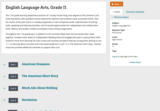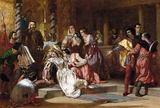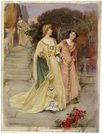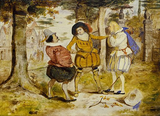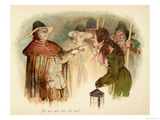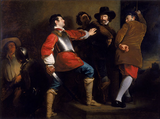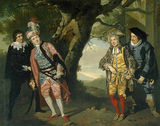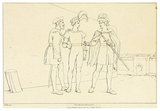This unit uses William Shakespeare’s Much Ado About Nothing as a vehicle to help students consider how a person is powerless in the face of rumor and how reputations can alter lives, both for good and for ill. They will consider comedy and what makes us laugh. They will see how the standards of beauty and societal views toward women have changed since the Elizabethan Age and reflect on reasons for those changes. As students consider the play, they will write on the passages that inspire and plague them and on topics relating to one of the themes in the play. Finally, they will bring Shakespeare’s words to life in individual performances and in group scene presentations.
ACCOMPLISHMENTS
Students read Shakespeare’s Much Ado About Nothing .
Students read two Shakespearean sonnets and excerpts from an Elizabethan morality handbook dealing with types of women, and they respond to them from several different perspectives.
For each work of literature, students do some writing. They learn to write a sonnet; create a Prompt Book; complete a Dialectical Journal; and write an analytical essay about a topic relating to a theme in the play.
Students see Shakespeare’s play as it was intended to be seen: in a performance. They memorize 15 or more lines from the play and perform them for the class. Students take part in a short scene as either a director or an actor.
GUIDING QUESTIONS
These questions are a guide to stimulate thinking, discussion, and writing on the themes and ideas in the unit. For complete and thoughtful answers and for meaningful discussions, students must use evidence based on careful reading of the texts.
What are society’s expectations with regard to gender roles?
Does humor transcend time? Do we share the same sense of humor as our ancestors?
How do we judge people?
How important is reputation?
BENCHMARK ASSESSMENT (Cold Read)
During this unit, on a day of your choosing, we recommend you administer a Cold Read to assess students’ reading comprehension. For this assessment, students read a text they have never seen before and then respond to multiple-choice and constructed-response questions. The assessment is not included in this course materials.
CLASSROOM FILMS
The Branagh version of Much Ado About Nothing is available on DVD through Netflix and for streaming through Amazon. Other versions are also available on both sites.


